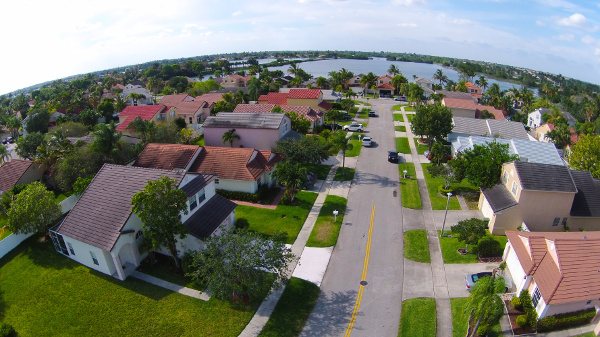Pay Off Your Home Faster with These Mortgage Tips
 The monthly mortgage payment that goes into purchasing a home is frequently the most expensive cost per month that most people will incur, and that means that it can be helpful to know the tricks of the trade in squaring away this payment more quickly. If you’re looking for some simple tips to get your mortgage paid off a little sooner, here are some pointers that will help you get to this goal.
The monthly mortgage payment that goes into purchasing a home is frequently the most expensive cost per month that most people will incur, and that means that it can be helpful to know the tricks of the trade in squaring away this payment more quickly. If you’re looking for some simple tips to get your mortgage paid off a little sooner, here are some pointers that will help you get to this goal.
Make Bi-Weekly Payments
It may seems like enough of an expenditure to pay your mortgage once a month, but making payments every two weeks can actually greatly reduce the amount of interest you’ll end up paying. For example, if your monthly payment happens to be $400, this would equate to $4800.00 in payments for the year. However, if you pay bi-weekly, this will actually increase your payment per year to $5200.00. While it may not seem like a significant difference, this can break down the principal and save you a lot of money on interest
Pay It Off With Extra Funds
It can be so easy to get used to the standard payment schedule that putting extra money down just seems like a burden, but if you receive an inheritance, a raise or get a bonus at work, you may want to consider putting this extra money towards your mortgage instead of a splurge! While smaller monthly payments will decrease your mortgage over time, a lump sum can help you see the difference in your monthly payment right away, which is a boon for paying it down further.
Keep Up-To-Date On Your Mortgage Options
Many people would rather forget about their mortgage and stick to what they’ve worked out when all’s said and done, but it’s a good idea to keep abreast of what’s happening on the market in case it can positively impact your mortgage. By keeping up to date on interest rates and more recent mortgage options, you may be able to negotiate a better deal or at least stay on top of your monthly payments in the event of an interest rate increase.
The monthly mortgage payment schedule can be a bit of a burden for many people, but there are ways to pay off your mortgage more quickly that can easily improve your sense of financial wellbeing. Contact your local mortgage professional for more information.

 From fixing up all the minor repairs to cleaning the house top-to-bottom, there are a lot of small details that go into organizing the perfect open house. However, in the rush to organize everything, there are a number of to-do’s that are easy to forget about. If you’re currently prepping your home and don’t want to miss the important stuff, here are some things you should contemplate before setting the date.
From fixing up all the minor repairs to cleaning the house top-to-bottom, there are a lot of small details that go into organizing the perfect open house. However, in the rush to organize everything, there are a number of to-do’s that are easy to forget about. If you’re currently prepping your home and don’t want to miss the important stuff, here are some things you should contemplate before setting the date. From finding the right agent to discovering the home you can truly feel comfortable in, there are a variety of things involved in the home buying process. However, it’s important not to get caught up in the home and ignore altogether the community you’ll be living in. If you’re planning a move to a new neighborhood, here are some things you should look into before putting in an offer.
From finding the right agent to discovering the home you can truly feel comfortable in, there are a variety of things involved in the home buying process. However, it’s important not to get caught up in the home and ignore altogether the community you’ll be living in. If you’re planning a move to a new neighborhood, here are some things you should look into before putting in an offer.